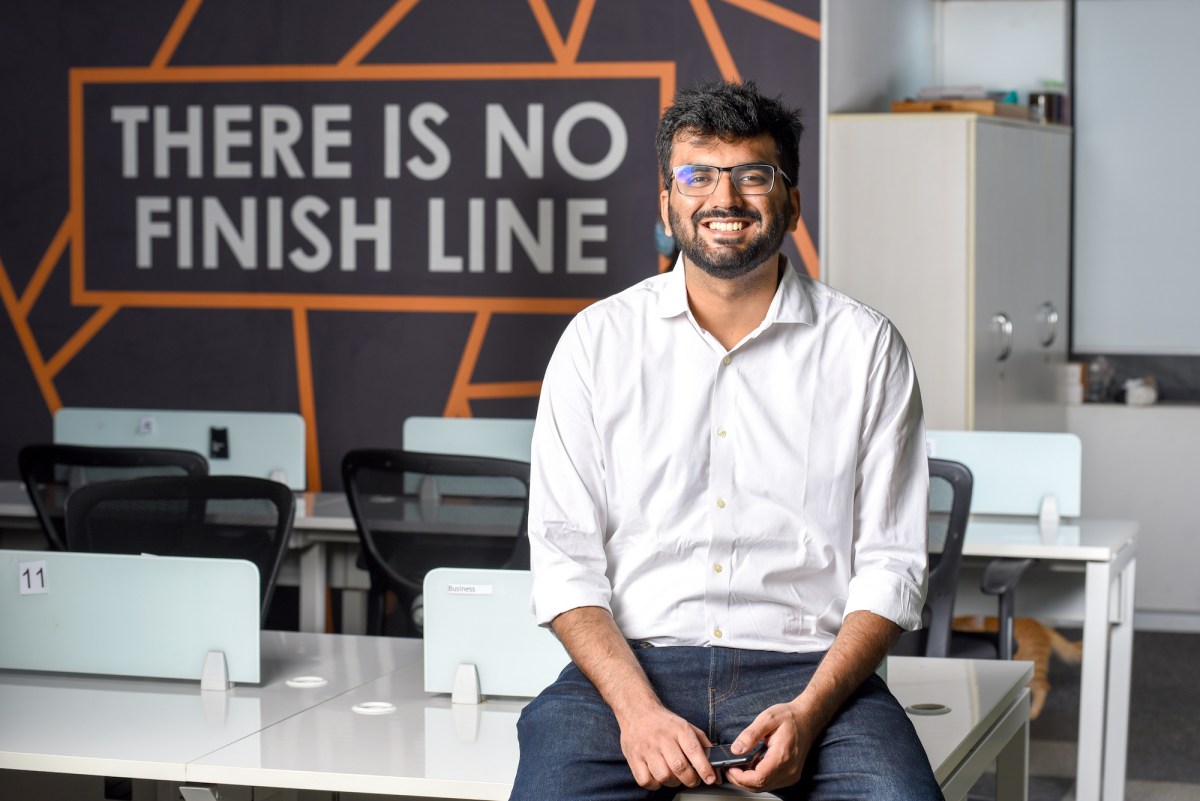It’s not everyday that OpenAI founder Sam Altman teaches your class at Stanford, but that’s the kind of entrepreneurial spirit Lawrence Lin Murata, co-founder and CEO of Slope, tapped into as he and Alice Deng build their B2B payments company.
“We met back in 2016 when he taught a class called ‘How to Start a Startup,” Lin Murata told TechCrunch. “He also gave a few talks, and we ended up staying in touch.”
That relationship blossomed and eventually turned into a vote of confidence by the famed startup investor after Lin Murata and Deng launched Slope in 2021. After raising a seed round in 2021 and Series A in 2022, Altman was one of the investors backing the company for its $30 million venture round in 2023.
“He was really impressed with the progress we made at Slope,” Lin Murata said.
Here’s what impressed Altman: Slope is a Silicon Valley-based B2B payments platform offering order-to-cash workflow automation for enterprise companies. Enterprise customers use Slope to manage transactions and optimize payment processes. They also use it to accept online payments and provide financing options to their buyers.
Behind Slope’s technology
Lin Murata and Deng both have a background in artificial intelligence, so large-language-model AI powers the company’s underwriting infrastructure, including B2B checkout, customer and vendor risk assessment, payment reconciliation and cash management.
The Slope team built proprietary LLMs and trained their models on proprietary data from the banking system at large, in the form of transactions, financial and payments activities to categorize and enrich bank data, Lin Murata said. It takes that raw bank data and recreates financial metrics that are then fit into Slope’s AI model for underwriting. The company also taps into alternative data sources, for example, publicly available information, social media information and any information from the merchants.
Prior to Slope, Lin Murata founded Newton Technologies in the self-driving car industry, and after the company was acquired by Nauto, brought over some of the early data science and engineering hires to start working at Slope. Slope has since invested in machine learning and data infrastructure along with real-time monitoring of customers and buyers so it can create viable risk profiles.
While self-driving car AI and LLM AI for financial transactions are very different disciplines, they have one big thing in common: the need for speed, Lin Murata said.
“Self-driving is such a cutthroat industry based on how fast you iterate on the models,” he said. “With Slope, iteration speed is a big moat. We have that active learning system to be able to constantly retrain and improve the model as we get new data. The macro economy is changing, so we want to be able to sense everything in real time, and, of course, correct, just like a self-driving car.”
Enter JP Morgan and the Altmans
Aside from the investment, Sam Altman’s influence weaved itself throughout the company. Lin Murata quoted one of Altman’s tweets from 2016 about hiring as inspiration for the company’s name: “Hire for slope, not Y-intercept. This is actually my number one piece of life advice.”
The tweet was basically a call to hire people who have the skills that will be needed in a fast-growing future (“slope” refers to the steepness of the line in a chart), rather than the skills that are needed for the role today (Y-intercept refers to the point where a line intercept the Y axis of a chart).
“That’s why we are called Slope,” Lin Murata said. “We believe in the iteration place. You see in Sam’s career, and also my career, as outsiders of fintech, we’re big believers in high slope. If you have two curves, one that has a higher Y intercept, the other one starts lower. As long as you have a slope, you’re eventually going to surpass the other one.”
Though Deng declined to go into details on exactly how much slope, aka customer and revenue traction, the company currently has, she did say it currently works with a handful of Fortune 500 companies — and more in the pipeline that will be announced in the next few months.
In addition to Sam Altman as an investor, his brothers Jack Altman and Max Altman have become new investors. Lin Murata and Deng met Max Altman in 2022 and were connected to Jack Altman last year.
They say all three Altman brothers have a founder and tactical mindset, yet they each bring different things to the table. Jack is known as the founder and former CEO of HR software startup Lattice which gives him people management expertise, in addition to investing experience from his Alt Capital firm.
Max Altman, co-founder and managing partner at his new fund Saga Ventures, previously invested in Slope back when he was with Apollo Projects. He has introduced the Slope founders to potential company leadership and investors as well as given advice on how to scale sales teams. Meanwhile, Sam can be called on to help with “strategic planning, market strategy and board management,” Lin Murata said.
Slope also secured JP Morgan Payments as the lead in a new $65 million strategic equity and debt financing round that Y Combinator, Jack Altman and Saga Ventures, participated in. The new funding gives the company total funding of $252 million, which breaks down to $77 million in equity and $175 million in debt.
Slope has remained a pretty lean team since 2021 — with just 24 employees, so the new funding will be used to scale the team and operations to serve more large enterprises, Deng said.
Enterprise focus
With a B2B payments market poised to grow to $174 trillion by the end of the decade, Slope is not the only startup trying to disrupt this sector. There are also companies like Paystand offering B2B payments in the decentralized finance space, and global companies Monite, Two, Xepelin and Nala for small businesses, to name a few.
But that’s where the vote of confidence from JP Morgan comes in. The bank’s Payments arm is not only an investor, but offers a potential in with JP Morgan Payments clients. JP Morgan Payments help clients pay customers or employees in different currencies around the world, processing nearly $10 trillion payments each day.
JP Morgan Payments chose Slope to help provide clients access to Slope’s short-term financing solution, according to the company. As such, Slope will join the JP Morgan Payments Partner Network, an ecosystem of third-party applications that can grow businesses faster.
James Fraser, global head of trade and working capital at JP Morgan Payments, said in a statement that as the embedded finance market grows in the United States, more corporations will be looking for solutions that “reduce friction, streamline processes and support origination.”
Slope’s strengths are in “underwriting and credit risk monitoring as well as platform flexibility,” Fraser said. As part of the investment, Fraser is joining Slope’s board as a board observer.
When asked if this strategic partnership could turn into a possible acquisition in the future, both founders vigorously shook their heads “no.”
“Our goals are the same, and we’re super clear with them. We want to build a category defining company,” Lin Murata said.











